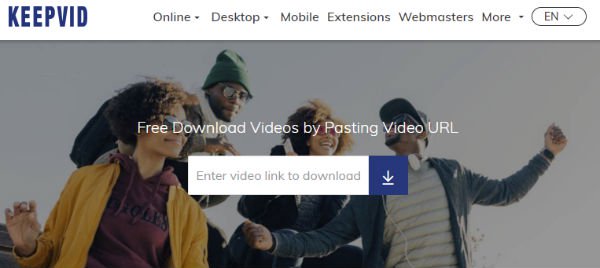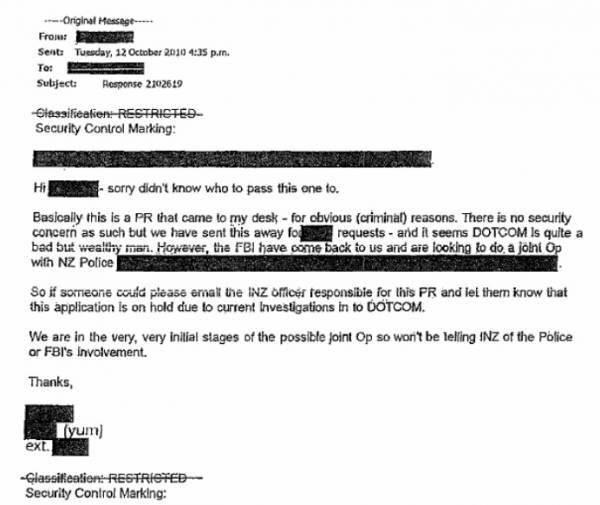Google Should Begin Delisting Pirate Sites, Aussie Rightsholders Say
jeudi 22 mars 2018 à 10:33 After being passed almost three years ago, in February the Australian government announced a review of its pirate site-blocking laws.
After being passed almost three years ago, in February the Australian government announced a review of its pirate site-blocking laws.
The Department of Communications asked for feedback on the effectiveness of the mechanism, from initial injunction application through to website blocking and, crucially, whether further amendments are required.
“The Department welcomes single, consolidated submissions from organizations or parties, capturing all views on the Copyright Amendment (Online Infringement) Act 2015 (Online Infringement Amendment) [pdf],” the consultation paper began.
Several responses from interested groups have been filed with the government and unsurprisingly, most come from entertainment industry groups seeking to expand on what has been achieved so far.
The most aggressive submissions come from the two companies that have made the most use of the blocking scheme so far – movie group Village Roadshow and TV provider Foxtel. Together the companies have had dozens of sites blocked in Australia by local ISPs but now they want the blocking regime expanded to online service platforms too.
Indeed, in the Roadshow and Foxtel submissions combined, Google is mentioned no less than 29 times as being part of the piracy problem Down Under.
“Village Roadshow strongly supported the original site blocking legislation and now we strongly support strengthening it,” Village Roadshow co-chief Graham Burke writes.
“With all major pirate sites blocked in Australia, the front door of the department store is shut. However, pirates, facilitated by Google and other search engines, are circumventing Australian Laws and Courts and opening a huge back door. Australia needs the power to require Google and other search engines to take reasonable steps to stop facilitating searches which lead to pirate sites.”
Burke goes on to criticize Google’s business model, which pushes tens of millions of people “searching for stolen goods” to pirate sites that hit them with “rogue advertising including illegal gambling, drugs, sex aids and prostitution.”
In a nutshell, the Village Roadshow co-chief suggests that Google’s business model involves profiting from knowingly leading consumers to illegal locations where they are ultimately ripped off.
“The analogy for Google is a Westfield Shopping Centre knowing they are getting big traffic to the center from a store that is using stolen goods to lure people and then robbing them!” he writes.
This anti-Google rant heads in a predictable direction. At the moment, Australia’s site-blocking regime only applies to ‘carriage service providers’, the home ISPs we all use. Village Roadshow wants that provision expanded to include ‘intermediary service providers’, which covers search engines, social media, and other types of internet intermediaries.
“Apart from ISP’s, many intermediaries are able to meaningfully impact traffic to infringing sites, and in fact, can and are currently used by pirates to find new locations and proxies to circumvent the ISP blocks,” Burke adds.
In other words, when served with an injunction, companies like Google and Facebook should delist results that lead people to pirate sites. This position is also championed by Foxtel, which points to a voluntary arrangement in the UK between search engines and the entertainment industries.
Under this anti-piracy code introduced last year, search engines agreed to further optimize their algorithms and processes to demote pirated content in search results. The aim is to make infringing content less visible and at a faster rate. At the same time, legal alternatives should be easier to find.
But like Village Roadshow, Foxtel doesn’t appear to be content with demotion – blocking and delisting is the aim.
“Foxtel strongly believes that extending the site blocking powers to search engines so that they must remove copyright infringing sites from search results would have a substantial impact on reducing piracy in Australia,” the company says.
“Search engines already remove URLs from site indexes to comply with local laws and product community standards and therefore, technologically Foxtel understands it would be a relatively simple exercise for search engines to comply with Australian blocking orders.”
Both Foxtel and Roadshow agree in other areas too. Currently, Australia’s site-blocking provisions apply to “online locations” situated outside Australia’s borders but both companies see a need for that restriction to be removed.
Neither company can understand why local pirate sites can’t be handled in the same way as those based overseas, with Foxtel arguing that proving an overseas element can be a costly process.
“Applicants must review individual domain locations and IP addresses and put on evidence relating to these matters to ensure that the location of the sites is established. This evidence, which we consider to be unnecessary, is produced at significant time and cost, all of which is borne by the rights holders,” Foxtel says.
While none of the above is particularly new in the global scheme of things, it’s interesting to note that even when agreements are reached and new legislation is formed, rightsholders always keep pushing for more.
That’s clearly highlighted in the Foxtel submission when the company says that the threshold for determining a pirate site should be lowered. Currently, a site must have a “primary purpose” to “infringe, or to facilitate the infringement” of copyright. Foxtel sees this as being too high.
In order to encompass general hosting sites that may also carry large quantities of infringing content, it would like to remove the term “primary purpose” and replace it with “substantial purpose or effect.” Given the recent criticisms leveled at Google and particularly YouTube for the infringing content it hosts, that request could prove difficult to push through.
Foxtel also sees a need to better tackle live streaming. In the UK, injunctions obtained by the Premier League and UEFA last year allow pirated live sports streams to be blocked in real-time. Although the injunctions are overseen by the courts, on a practical level the process is carried out between rightsholders and compliant ISPs.
Foxtel believes that Australia needs something similar.
“For site blocking to be effective in Australia in respect of live sport streaming sites which frequently change location, Foxtel anticipates that a similar process will ultimately be required to be implemented,” the company notes.
With the consultation process now over, dissenting submissions are in the minority. The most notable come from the Pirate Party (pdf) and Digital Rights Watch (pdf) although both are likely to be drowned out by the voices of rightsholders.
Source: TF, for the latest info on copyright, file-sharing, torrent sites and more. We also have VPN reviews, discounts, offers and coupons.

 Despite the growing availability of legal options, online piracy remains rampant. Every day pirate sites are visited hundreds of millions of times.
Despite the growing availability of legal options, online piracy remains rampant. Every day pirate sites are visited hundreds of millions of times. For many years,
For many years, 

